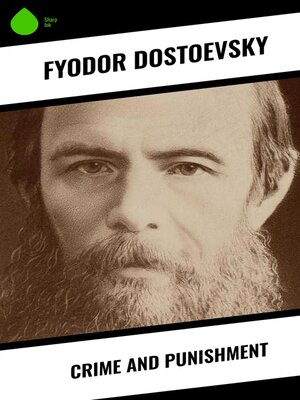
Sign up to save your library
With an OverDrive account, you can save your favorite libraries for at-a-glance information about availability. Find out more about OverDrive accounts.
Find this title in Libby, the library reading app by OverDrive.



Search for a digital library with this title
Title found at these libraries:
| Library Name | Distance |
|---|---|
| Loading... |
In 'Crime and Punishment,' Fyodor Dostoevsky masterfully explores the tumultuous psyche of Raskolnikov, a former student plagued by existential dread and moral ambiguity. Set in the oppressive atmosphere of 19th-century St. Petersburg, the novel intricately weaves a narrative that delves into themes of guilt, redemption, and the philosophical implications of crime. Dostoevsky's prose is rich and psychologically compelling, reflecting the influence of the emerging existentialist thought and the socio-political turbulence of his time. Through Raskolnikov's internal struggles and interactions with a cast of vividly drawn characters, the work confronts the reader with profound ethical dilemmas that remain relevant today. Dostoevsky, a figure marked by personal tragedy, debt, and the harsh realities of life in Imperial Russia, infuses his narrative with deep psychological insight. His own experiences in a Siberian labor camp profoundly shaped his understanding of suffering and redemption, imbuing 'Crime and Punishment' with an authenticity and intensity that resonate powerfully. This novel encapsulates his belief in the possibility of moral resurrection through suffering, drawn from his turbulent life and philosophical queries. Highly recommended for both scholars and general readers, 'Crime and Punishment' serves as a cornerstone of psychological and philosophical literature. Dostoevsky's exploration of morality and the human condition challenges readers to engage with their own ethical convictions and offers a timeless meditation on the complexities of justice and redemption.







